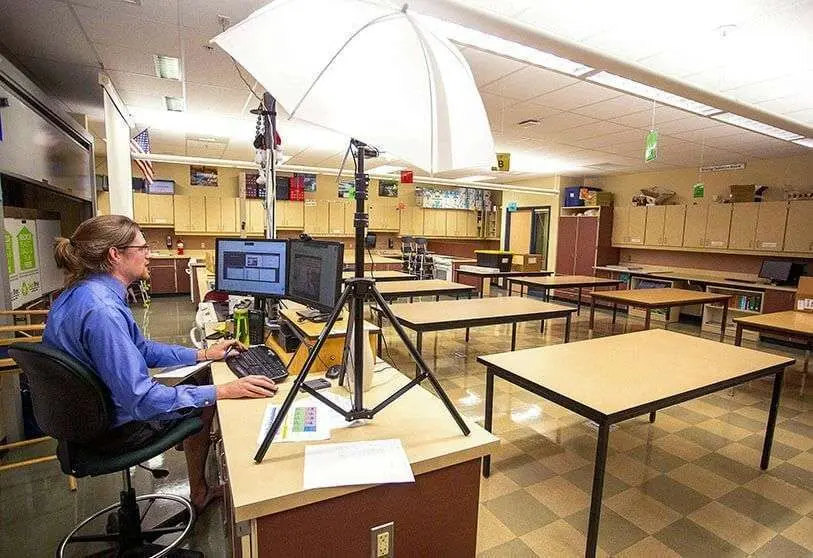School dropouts and coronaviruses

António Guterres, head of the United Nations (UN), warns that the pandemic has created a dangerous breeding ground for the education sector, putting it at risk of increased absenteeism and primarily drop-out rates in the classroom. For school failure, the only vaccine is learning, discipline and committed study, the evolution of the SARS-CoV-2 global infection data is not encouraging: those infected with coronaviruses number more than 24 million, while the number of deaths is approaching one million; and not even the high summer temperatures have managed to contain the pathogen, which continues to circulate between continents and countries as travellers move from one place to another, thereby contributing to the spread of the six strains of the virus recognised by the who, showing varying intensities in its spread and adverse effects.
Guterres predicts a "generational catastrophe" if several schools remain closed and people do not return to the classroom to start the 2020-2021 educational cycle. In cold, hard data, the UN itself states that "the world was already suffering an education crisis before the pandemic" because more than 250 million school-age children were not in school. As of early September, schools in nearly 160 countries remain closed, affecting the return to school of one billion students.
The coronavirus has also disrupted the education sector, which was taken by surprise by the health emergency and by confinements, showing that mobile phones and other technological devices use the internet more for social networking than for creating new educational circuits that are conducive to implementing real virtual classrooms. No one has been prepared and each country is laying bare its great deficiencies and shortcomings: in Mexico, the return to classes has been decided under the painful and rampant polarisation of its social strata, those who can study online with their tablets and personal computers.
Those from the Mexico of the Deep will return to the televisions, that is, to the classes of forty years ago when the telesecundarias were the only option for a good number of teenagers and forgotten boys in the corners of the homeland. This cursed virus is widening the gaps in every sense and in every sector, and making social coexistence more sour. Friendships and weak marriages have succumbed to the tensions of the crucial moment, leaving our greatest feelings and fears naked. In the meantime, students are being hit by an imminent reality: digitalisation as an option; and those who have the means will continue, those who do not will be left behind and will leave school.
For many decades we believed that our greatest social challenge to include the excluded began with literacy, the pandemic has reminded us that those who are alienated from new technologies are now digitally illiterate... and some are probably doubly illiterate; that is, doubly excluded in Africa, in many parts of Asia and, of course, in Latin America; although Europe should also look at the beards of minority groups of immigrants and other vulnerable groups.
In Europe, the return to school is proving to be a headache, as some groups of parents are asking Education to allow them to choose between bringing their children to the classroom or taking classes online. Boris Johnson, the UK Prime Minister, says that transmission among children is "very, very low" and that, if they do become infected, the effects on them are "very, very low". The UK is even considering penalising parents who do not bring their children to the classroom.
Schooling is more than a right in Europe, it is an obligation, and many rebellious parents could be faced - in the face of their refusal to enrol their children - with a school drop-out file that would confront them with social services. This is as complex as the dilemma of the stock market or life... parents should decide whether or not to send their children to school or to continue classes at home; the crux of the matter is that there are no teachers to cater for all the extraordinary needs, just as hospitals have not had - nor do they have - enough beds with the necessary ventilators. We think about our health, but the authorities in their budgets and management capacity...

